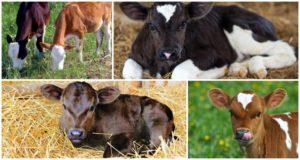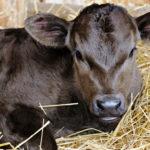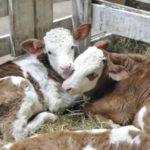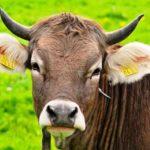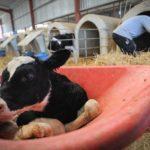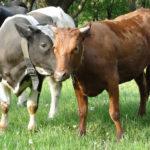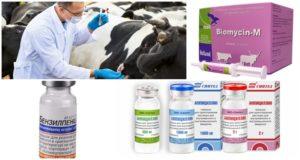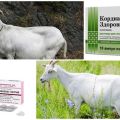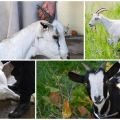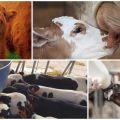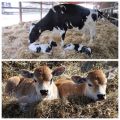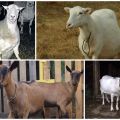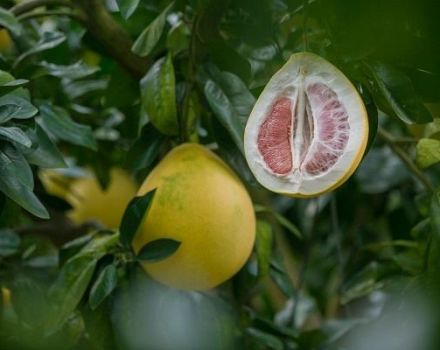What to do if the calf does not eat or drink and how to feed the young correctly
The birth of a calf is the most important event in farming. Responsibility for the health of the cow offspring lies with the person, not the calving animal. Your baby needs special care to be strong in the future. If the calf does not eat or drink milk, what to do in this situation? The reasons may be associated with physiological characteristics, pathologies.
Why the calf doesn't eat or drink
Let's consider the main reasons for the lack of appetite in a newborn animal.
Sucking reflex is not developed
The baby may refuse food and drink due to a poorly developed sucking reflex. He is in no mood, because he does not understand how to get food. To help the calf cope with the problem, direct it to the cow's udder. After 2-3 feeds, he will remember the process, he will cease to be lethargic and eat poorly.
The newborn calf needs to understand the taste of breast milk. To do this, you need to wet your finger with colostrum, let the baby lick it.
Unattractive food
Another urgent problem faced by calves is milk at the wrong temperature. The liquid should be between 37-39 degrees. Also, the newborn may not like the taste of milk. In this case, it seems that he has no appetite. Experts advise adding the following components to the feeding bottle:
- fish oil - 2 tbsp. l .;
- egg - 1 piece;
- salt - 1 tsp.
Thoroughly mix the ingredients with milk, water the young from the teat. You should gradually get used to food, constantly monitor so that your appetite does not disappear. If this happens, you need to use two methods of attracting to feeding at once: finger and nipple.
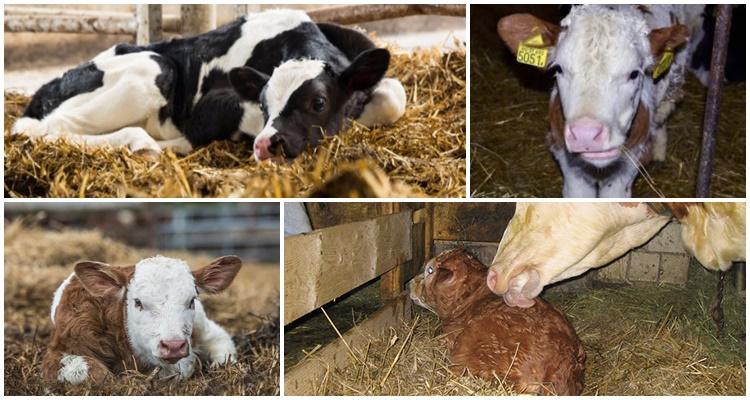
Got sick
If the calf refuses to drink milk, it may indicate illness. Healthy animals always have a good appetite. Probable diseases in which the baby stops eating properly:
- white muscle disease;
- white diarrhea;
- inflammation of the lungs, gastric mucosa;
- paratyphoid;
- hernia.
If you suspect any ailments, the small bull should be shown to the veterinarian, and promptly provided with the necessary treatment.
Calf nutritional features
An animal is born with a weakened immune system, its formation is just beginning. Only the abomasum section of the stomach fully functions in the gastrointestinal tract. All the missing microelements, the strengthening of the immune system is provided by the cow when she begins to feed with colostrum. It also raises appetite in the future.
It is important for your baby to eat within 2-4 hours after birth. During the first feeding, the animal should receive about 1.5 liters of colostrum. If this amount is too much for him, you need to gradually solder it in small sips.
The first couple of days the calf should be given 6 liters of colostrum, divided into 4-5 feedings. A healthy animal should have a dry tail and a wet nose. When the newborn gets stronger, it can be transferred to milk feeding, then taught to drink water from a bucket.
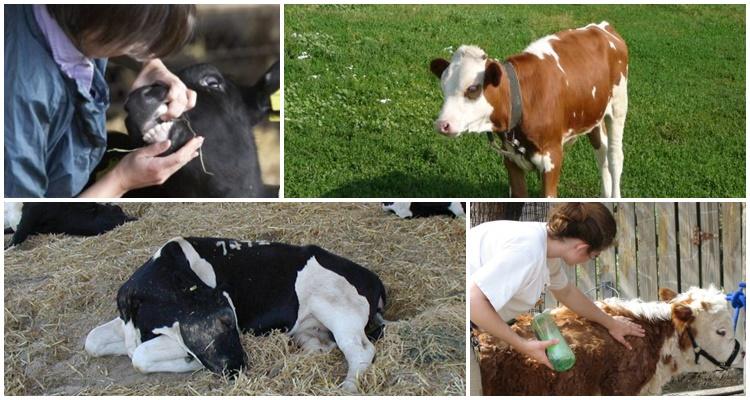
How to transfer an animal to artificial feeding
After calving, a cow does not always produce enough milk to fully feed the offspring. In such situations, it is required to transfer the baby to artificial nutrition. Only this will help a small animal to form and develop correctly. Difficulties may arise during the translation process. After consuming a natural product, the baby is not always ready to eat artificial substitutes.
Prevention
Preventive measures to prevent loss of appetite in calves include eliminating the possibility of gastrointestinal diseases. To do this, you should adhere to the following rules:
- feed the baby for the first two weeks with colostrum;
- liquid temperature - 37-39 degrees;
- buy products with a high fat content as artificial feeding;
- do not overfeed animals;
- periodically clean the calf pens;
- to plant sick animals for isolation.
Before feeding newborns, wash the bottles in boiled water with baking soda added. Food in the troughs needs to be changed every day, not to leave yesterday's. To strengthen the immune system, the calf needs to be fed cow's milk or artificial milk for a minimum of 12 weeks.
It is important to monitor the functioning of the gastrointestinal tract. If the baby starts having diarrhea, remove the newly added complementary foods.
When this does not solve the problem, you need to contact your veterinarian. You cannot delay the visit, otherwise the health of the young will worsen. Pathological processes in the body of newborns are developing rapidly. After 3 weeks from birth, the baby is gradually introduced to complementary foods. The diet should contain the following trace elements:
- salt;
- bone flour;
- a piece of chalk;
- feed phosphates.
An insufficient amount of nutrients leads to slow growth and development of the animal, the appearance of diseases. Rational and proper nutrition of the newborn calf is the basis for its good health in the future. The animal needs special care, hygiene, quality feeding. When the calf does not eat or drink, it is necessary to immediately contact the veterinarian to determine the type of ailment and solve the problem.
